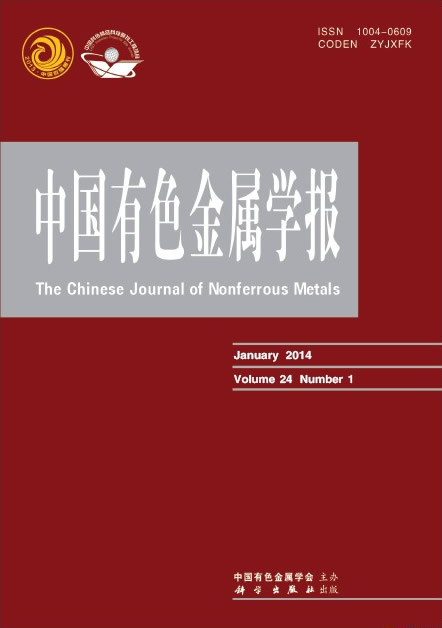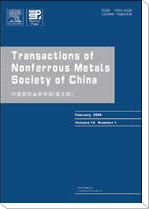中国有色金属学报(英文版)
Transactions of Nonferrous Metals Society of China
| Vol. 31 No. 11 November 2021 |
(1. School of Energy and Power, Jiangsu University of Science and Technology, Zhenjiang 212003, China;
2. Analysis and Testing Center, Jiangsu University of Science and Technology, Zhenjiang 212003, China;
3. State Key Laboratory of Silicon Materials, Department of Materials Science and Engineering, Zhejiang University, Hangzhou 310027, China)
Abstract:Mn nanoparticles (nano-Mn) were successfully synthesized and doped into MgH2 to improve its de/hydrogenation properties. Compared with MgH2, the onset desorption temperature of 10 wt.% nano-Mn modified MgH2 was decreased to 175 °C and 6.7, 6.5 and 6.1 wt.% hydrogen could be released within 5, 10 and 25 min at 300, 275 and 250 °C, respectively. Besides, the composite started to take up hydrogen at room temperature and absorbed 2.0 wt.% hydrogen within 30 min at low temperature of 50 °C. The hydrogenation activation energy of MgH2 was reduced from (72.5±2.7) to (18.8±0.2) kJ/mol after doping with 10 wt.% nano-Mn. In addition, the MgH2 + 10 wt.% nano-Mn composite exhibited superior cyclic property, maintaining 92% initial capacity after 20 cycles.
Key words: hydrogen storage material; magnesium hydride; Mn nanoparticles; catalytic mechanism; reversibility


